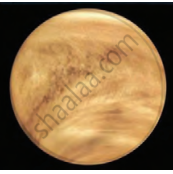Topics
Natural Resources – Air, Water and Land
- Natural Resources
- Atmosphere and Its Layers
- Air Around Us
- Composition and Components of Air
- Importance of Air
- Air Pollution and Its Causes
- Water: Our Lifeline
- Availability of Water
- Composition of Water
- Importance of Water
- Scarcity of Water
- Land
- Soil Formation
- The Importance of Conserving Earth’s Natural Resources
The Living World
Diversity in Living Things and Their Classification
Disaster Management
Substances in the Surroundings –Their States and Properties
Substances in Daily Use
Nutrition and Diet
- Nutrients and Nutrition
- Component of Food
- Carbohydrates
- Diseases Due to Deficiency of Carbohydrates
- Fats (Lipids)
- Diseases Due to Deficiency of Fats
- Proteins
- Diseases Due to Deficiency of Proteins
- Vitamin and Minerals
- Diseases Due to Deficiency of Vitamin
- Diseases Due to Deficiency of Minerals
- Fibre
- Diseases Due to Deficiency of Fibre
- Water
- Diseases Due to Deficiency of Water
- A Balanced Diet
- Nourishment and Malnutrition
- Food Adulteration
Our Skeletal System and the Skin
Motion and Types of Motion
Force and Types of Force
Work and Energy
- Force, displacement and work
- Energy
- The relationship between work and energy
- Forms of Energy
- Mechanical Energy
- Power Plants Based on Thermal Energy
- Light Energy
- Sound energy
- Chemical Energy
- Transformation of Energy
- Energy Resources
- Conventional energy resources or non-renewable energy resources
- Non-conventional energy resources or renewable energy resources
- Energy saving and green energy
Simple Machines
Sound
Light and the Formation of Shadows
Fun with Magnets
The Universe
Venus:
It is the brightest planet in the solar system. It is seen in the sky in the east before the sunrise and in the west after the sunset.
- Unlike most planets, Venus rotates from east to west. This means if you were standing on Venus, the Sun would rise in the west and set in the east.
- Venus is the hottest planet in the solar system, even hotter than Mercury, which is closer to the Sun. This is because its thick atmosphere traps a lot of heat.

Venus
If you would like to contribute notes or other learning material, please submit them using the button below.
